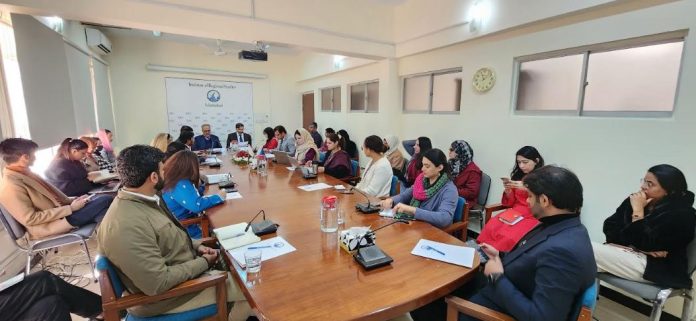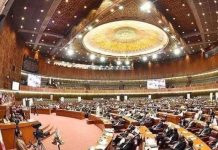The people of Afghanistan related with Pakistan in a way they did not with the people of any other neighbouring country, he added. Emphasizing the historical, cultural, and ethnic context of the Pak-Afghan relations, he urged the Government of Pakistan to also take a holistic sociocultural approach towards Afghanistan instead of treating it as a bureaucratic exercise. He countered the argument that Afghans did not like Pakistan
Mahnoor Ansar
ISLAMABAD: Ambassador Asif Durrani, Pakistan’s former Special Representative for Afghanistan expressed serious concerns over the US decision to halt economic assistance to Afghanistan. While speaking at a roundtable discussion held at the Institute of Regional Studies (IRS) here on Thursday, he shared that half of Afghans were dependent on international humanitarian assistance who might be forced to migrate to Pakistan because of extreme poverty with the stop to US economic assistance. “We need to be prepared for such an eventuality,” he said. Ambassador Durrani further shared that the Taliban government had already informed its employees that they would not be getting salaries for the coming three months.
Listing some positives coming out of the Taliban government, he mentioned that corruption and poppy cultivation had reduced but added that the United Nations Office on Drugs and Crime (UNODC) had reported an increase of 19 per cent in poppy cultivation last year. He cautioned that poppy cultivation could rise further if the dire economic situation of Afghanistan remained unchanged. Ambassador Durrani shared that the immediate neighbours of Afghanistan and Russia were sustaining Afghanistan through currency swaps and border trade but warned that it was not enough for a full economic recovery of a country as large as Afghanistan.
Ambassador Durrani termed the relationship between Afghanistan and Pakistan as different from the relations either country had with any of its other neighbours.
The people of Afghanistan related with Pakistan in a way they did not with the people of any other neighbouring country, he added. Emphasizing the historical, cultural, and ethnic context of the Pak-Afghan relations, he urged the Government of Pakistan to also take a holistic sociocultural approach towards Afghanistan instead of treating it as a bureaucratic exercise. He countered the argument that Afghans did not like Pakistan. “If Afghans hate Pakistan, why do we issue 3,000 visas a day to Afghans?” he remarked.
Speaking on the occasion, Mr. Aarish U. Khan, the Head of the Afghanistan Program at IRS, expressed his hope for improvement of economic relations between Afghanistan and Pakistan. Referring to the recent US announcement to rescinded certain waivers to sanctions against Iran, including the ones accorded to the Chabahar Port, he argued that it will make Afghanistan more reliant on Pakistan’s ports for trade with the rest of the world. In his concluding remarks, President IRS Ambassador Jauhar Saleem emphasized the historical brotherly relations between Pakistan and Afghanistan and called on both the governments to tap into the potential of the people-to-people and business-to-business relations between the two countries rooted in the longstanding historical and cultural connections between the two countries.












